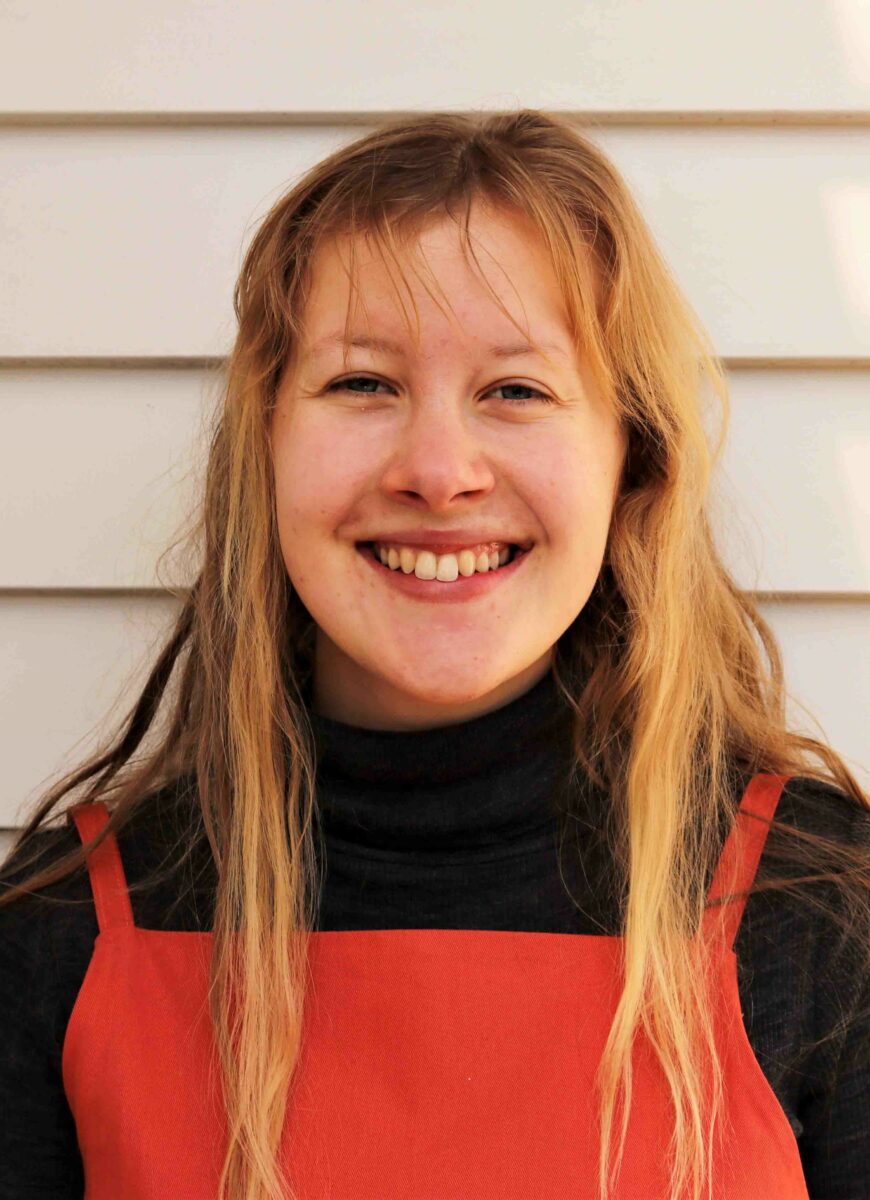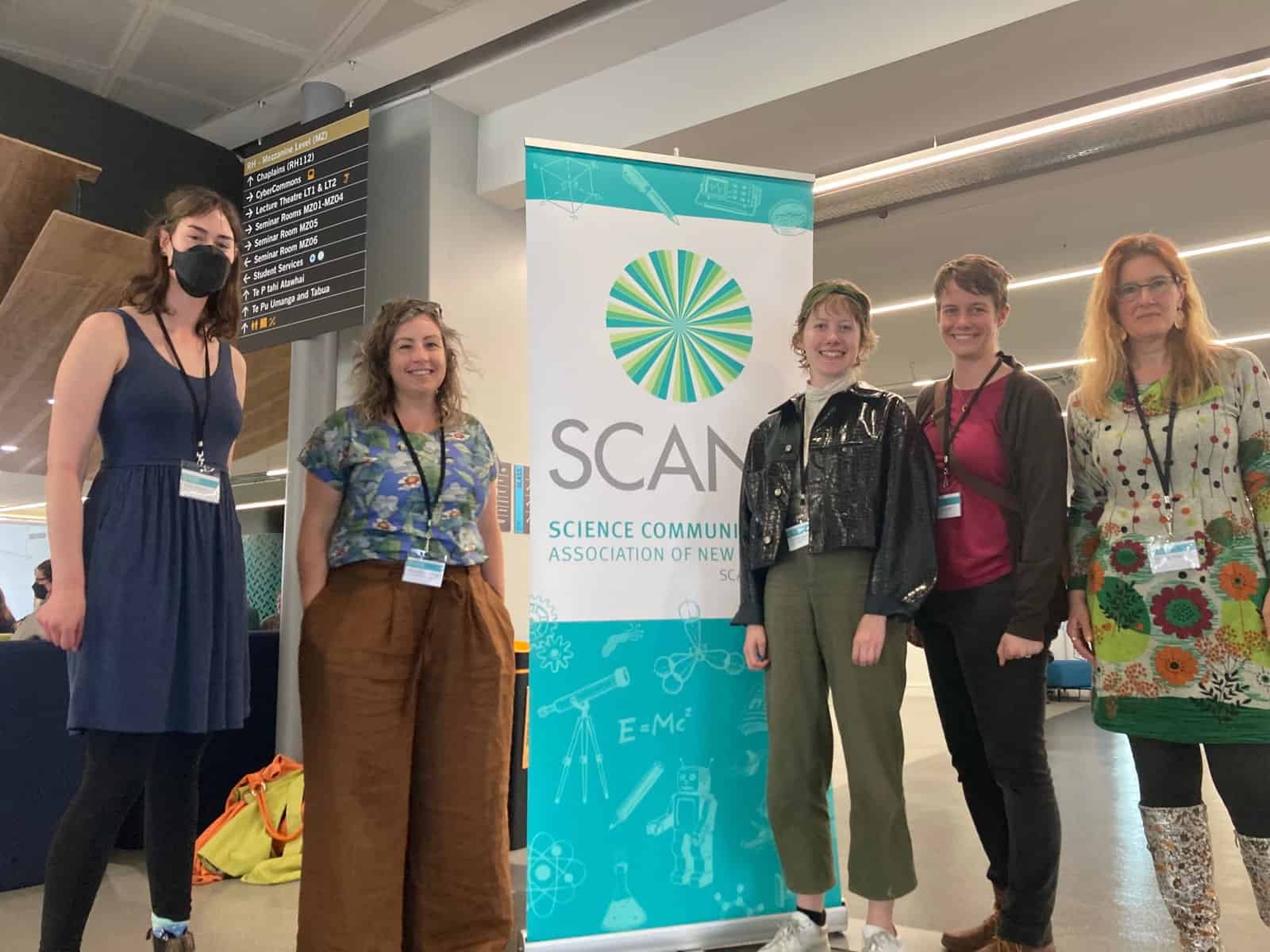Several presenters at the annual conference were associated with BioHeritage. Marie McEntee from the University of Auckland, co-lead of NRT’s Mobilising for Action and BioHeritage’s National Conversations project in the Novel Tools & Strategies programme, ran a workshop using purposeful games to address knowledge and emotional barriers to dialogue and learning. Science communication contractor Jenny Leonard, who often writes for the BioHeritage newsletter, gave a talk on lesson learned on Beyond Myrtle Rust’s social media journey. Kiri Reihana, who has contributed tremendously to the Control, Protect, Cure theme, joined one of the panels and also showcased some new developments in her virtual reality work.

The conference MC was Ceridwyn Roberts, who has been helping launch Eco-index’s new interactive map showing biodiversity priorities and the estimated natural range of ecosystems, while participants with links to BioHeritage included communicator and podcaster Molly Magid, who led external communications for the Farming with Native Biodiversity pilot project, and Melanie Newfield, who has been working on perceptions of biosecurity risk as part of He Tangata, He Ōhanga, He Taiao.
Cawthron Institute science communicator Mckayla Holloway, who recently joined the Pathways to Ecosystem Regeneration programme, was part of the Lakes380 team working on the past and present health of lakes, which won the 2023 SCANZ Excellence in Science Communication Award. The judges were impressed with how they adapted methods of information sharing to suit their identified audiences, including of innovative techniques such as virtual reality, and with the relationship developed with relevant locals such as mana whenua.
BioHeritage sponsored a scholarship to enable Hannah Savage to attend SCANZ. Hannah, a science communicator with Waikato Regional Council, first became aware of SCANZ while studying a paper at Otago University’s Science Communication department in 2020 and has since followed them on digital platforms.
“As I am an early career geography graduate, the SCANZ conference arose as an exciting opportunity to inspire my next steps in the direction of science communication,” says Hannah.
Immediately, Hannah says she felt relieved at how inclusive and welcoming the atmosphere was. “Conferences can sometimes have this intimidating intellectual front, however, at SCANZ it felt as though each person in the room had valuable stories to impart, and each were open to receiving knowledge from others. It was inspiring to see the passion behind some of the people I met who produce podcasts, teach university students or are working towards qualifications themselves.”
Hannah took interest in the recurring theme of AI that was touched on at different points throughout the conference.
“The world of AI and its rapid development is pretty removed from my everyday work, so I found these discussions insightful, and somewhat uncomfortable.”
There were also interesting conversations about data.

“One speaker commented on how decisions needing to be data-informed as opposed to data-driven, as there is a larger ecosystem of factors that contribute to a decision-making process. Another important conversation was Dr Karaitiana Taiuru’s presentation, which explained Māori data as taonga and how through Te Tiriti, Māori data requires careful regulation and protection. This is a critical discussion in New Zealand that deserves more attention.”
Hannah found the workshop ‘How to structure effective science story pitches for digital and traditional channels’ particularly helpful.
“Because my role at Waikato Regional Council involves translating Council’s work into digestible written stories, this workshop taught me how to construct a narrative around a clear angle and to use concise sentences to maximise impact.”
Beside these practical skills, Hannah feels that expanding her professional network was also helpful. “Connections I made during the conference will no doubt help to bring forward great opportunities in the future.”
The next SCANZ conference will be held in Auckland in late November 2024.
Keith Lyons
